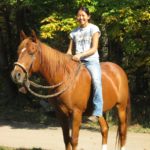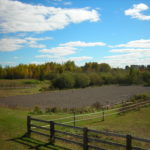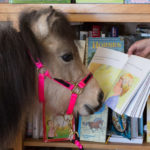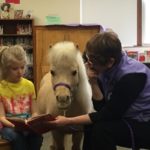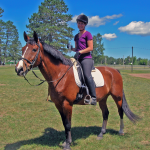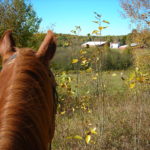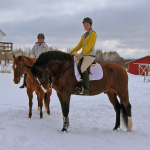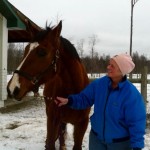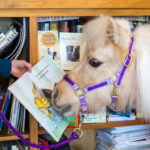10 April 1952
Dad always told me you could do as you pleased with anything you owned; the owner is the loss. If a man owns his home, only a city ordinance can keep him from painting it yellow with pink stripes and purple polka-dots.
I wasn’t a great deal older before I learned that what a man owns sometimes becomes his owner. Thoreau even claimed that a farm owns the man, instead of the other way around. That is how it went when I began owning horses.
Jack and Jim were first. Jack was old and easy-going, but not too affectionate, because he had studied considerably in the school of hard knocks, and not by his own choice, either. Jim was different. He was nervous, temperamental, and bashful, but he would pull his heart out for me. He, too, had been kicked around in his youth and he didn’t trust anyone. I guess that is what made him so independent. He had to obey in harness, of course, but in the barn and the pasture, he made me understand that he was boss. If I were properly polite and humble, he would even let me scratch his neck once in a while. Eventually, he became so old that life became a burden to him, but when he died, he took part of me with him.
A little Arab horse named Pride was my next owner. We met at his farm when he was a year old, and I was twenty-three. It cost me fifty dollars to become his property. I hauled him home and he took over my farm and the whole works. He must have figured that was part of the bargain. He couldn’t manage the dog, though, because her teeth were sharper than his and her temper was short and brittle. Pride had a lot of itchy spots and my first job was to scratch them. After that he needed regular feed and human companionship; the other horses weren’t good enough. We could fool him, though, by setting the radio out for him. I still don’t understand how he staked his claim and made it stick. He even thought he did me a favor by biting me once in a while, but that wasn’t in the contract, so I talked him out of it.
I have been gone three years now, but Pride is still my owner. When I come home, he kindly helps me shag cattle out of the brush and ride fence, but if there is a tasty weed in the path, it is my duty to stop until he can taste it.
Gypsy, Diana, and Bonnie formed a corporate ownership of me all at the same time. They were redheads, temperamental and affectionate. You couldn’t help but love horses like that. Talk about your dumb animals! They could talk in a dozen different ways, with their ears, their eyes, their nostrils and all kinds of sounds. When they wanted salt, they licked my hands. If I didn’t know whether Dad had fed them or not, I would rattle the feed box. If they were hungry, they would tell me.
A man can’t escape ownership like that. There seems to be an unwritten Fugitive Slave Law that reaches out over the distance, and it reminds me of brown eyes watching me from across a fence, begging for an ear of corn. I dream that I hear a soft nicker. Have I forgotten that it is feeding time? Then I think of the many times a pair of great red mares dropped to their knees to put every last ounce against the collar when I wanted a big log skidded out. They are three hundred miles away, but I know by the lump in my throat that the owned still own the owner.

